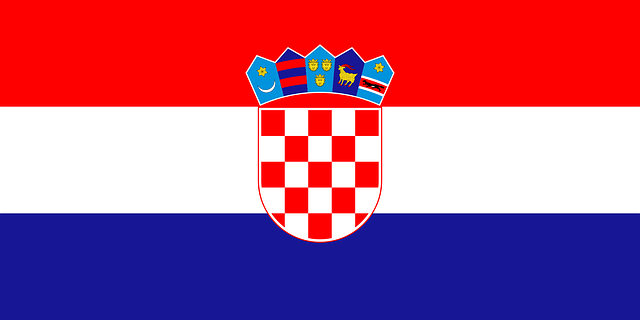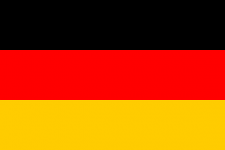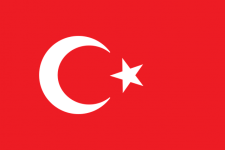CROATIA

ICSE Science Factory Croatian National website:
https://sciencefactory.math.hr/
The Faculty of Science, University of Zagreb
The Faculty of Science, University of Zagreb is one of the leading scientific institutions in Croatia. It consists of 7 departments and also comprises a botanical garden, a seismographic service, and a mareographic station. It employs around 500 scientists and lectures, and leads or participates in about 150 scientific and professional projects. Scientific research is carried out within mathematics and natural sciences, interdisciplinary areas of science and educational research, accounting for about 20% of the total scientific production of the University of Zagreb. Faculty organizes many workshops and conferences with an aim to improve the collaboration between international and local scientists, as well as to increase the popularization of science.
Faculty of Electrical Engineering and Computing (FER), University of Zagreb
The Faculty of Electrical Engineering and Computing (FER) is the largest technical faculty and a leading educational and research institution in the fields of electrical engineering, computing, and information and communication technology in the Republic of Croatia. The current research and teaching staff consist of 198 professors and 338 teaching and research assistants, as well as about 3500 undergraduate and graduate students and 390 postgraduate students. FER is involved in around 200 projects funded by the EU or at a national level. In the last 5 years, FER has participated in many projects financed by different funding programs: HORIZON 2020 (49 projects), HORIZON EUROPE (11 projects), BILATERAL (50 projects), COST ACTIONS (35 projects), ERASMUS+ (23 projects), INTERREG, European Regional Development Fund, European Social Fund, Croatian Science Foundation (180 projects) and other.
Croatian Mathematical Society
The Croatian Mathematical Society is a professional association of mathematicians in the Republic of Croatia whose goal is the improvement and promotion of mathematical science, the teaching of mathematics at all levels, the application of mathematics in other disciplines, as well as the improvement of the social position of mathematicians as a whole. Through 5 sections, youth and associations that are collective members, the Croatian Mathematical Society gathers scientists, primary and secondary school teachers, teachers of higher education institutions, employees of various companies, students and pupils. Through its activities, the Croatian Mathematical Society works to ensure that Croatia is included in the latest trends in mathematical sciences.
CYPRUS

ICSE Science Factory Cyprus National website:
https://pure.unic.ac.cy/en/projects/icse-science-factory
The University of Nicosia
The University of Nicosia (UNIC) is an independent, co-educational, equal-opportunity institution of higher education, which offers a wide range of programmes to students from around the world. UNIC participates in the project through the InSSTER (Innovative Science Society Technology and Education Research) Center of the Department of Education. InSSTER has extensive research experience on issues related to integrated STEM education and interdisciplinarity, sustainability, environmental socio-scientific issues, teacher training, and the development of teacher training materials with an emphasis on primary, pre-primary, and secondary school teachers. UNIC oversees the evaluation work package in the context of ICSE Factory.
The Cyprus Pedagogical Institute
The Cyprus Pedagogical Institute was founded in 1972 aiming at becoming a center where the teaching profession undertakes a reflective stance as regards teaching and learning and follows cooperative and inquiry-based models of professional learning. It is a Directorate of the Ministry of Education, Sports and Youth, and reports directly to the Permanent Secretary of the Ministry. The vision of the Cyprus Pedagogical Institute is the continuous professional learning of the teachers at all levels as well as the substantial contribution to the planning and implementation of educational policy, taking into consideration research results and the priorities set by the Ministry, in order to improve the quality of the educational system. The Pedagogical Institute participates in European Research Programs such as ICSE Factory. Through its participation, the CPI promotes reflective interaction and exchange of experience and expertise between teachers on open-schooling and problem-solving approaches in STEM education.
GERMANY

ICSE Science Factory German national website:
ICSE, University of Education Freiburg
The University of Education Freiburg is the hub for teacher education and educational science in southwestern Germany. It is represented by the highly qualified team of the International Centre for STEM Education (ICSE) and holds a key role in managing the ICSE Science Factory. The innovative and successful approach to reform day-to-day schooling through cutting-edge research has shone a spotlight on ICSE and therefore the ICSE Science Factory, creating a national and international network of the industry- and business partners in the endeavor. The cooperation of these influential partners with Higher Education Institutions and schools enables the ICSE Science Factory to fulfill its full potential in integrating communal problem-solving approaches in school curricula.
Schülerforschungszentrum Südwürttemberg (SFZ) e.V.
With an excellent STEM offer, we want to inspire young people and show them perspectives for the future. The Schülerforschungszentrum (SFZ) Südwürttemberg e.V. continues where school inevitably has to stop. Children and young people whose interest in mathematics, computer science, natural sciences, and technology (STEM subjects) goes beyond regular school material can research, develop, and invent at the “SFZ” in their free time – just as others learn a musical instrument or practice any kind of sport. They present their research results at approximately 40 national and international competitions and trade fairs. Around 740 students from all types of schools conduct research at nine “SFZ” locations, supervised by approximately 60 teachers, 50 volunteers, and a few students. The mission of the non-profit association is to be a research center for all students out of the region of South Württemberg, where young STEM talents are encouraged and inspired at a high level. In addition, the “SFZ” is a recognized institution where teachers develop high-quality teaching and learning materials for the STEM sector.
Chair of Forest Growth and Dendroecology, University of Freiburg
The Chair of Forest Growth and Dendroecology is a research institution at the University of Freiburg, Germany. In our daily work, we investigate growth processes and basic principles for sustainable production of renewable resources in various tree-dominated land use systems. We develop methods for the quantitative assessment, analysis, and prediction of tree growth from cell to stand scale. Further research focus areas are dendroclimatology and dendrochronology. Besides we are training students in forest sciences and environmental sciences at university.
Within the ICSE Science Factory, we provide different types of workshops related to forests and we would like to support teachers to implement their own project ideas concerning forests or nature.
PORTUGAL

ICSE Science Factory Portuguese national website:
The Instituto de Educação (IE)
The Instituto de Educação (IE) is the institution of the Universidade de Lisboa committed to research, training, and public intervention in Education and Training. Over the past years, it has been distinguished as a leading institution in the domain of Education in Portugal. IE provides training activities in undergraduate (bachelor) and graduate (specialization, master’s, and doctorate) programmes in different fields of Education and Training. IE provides advisory and training services to educational organizations and scientific and technical support for the design, monitoring, and evaluation of public policies, in Portugal and in Portuguese-speaking countries. UIDEF is the research unit of the IE-ULisboa. UIDEF has a strong team of researchers, including members from other higher education institutions, and maintains close partnerships with several national and international partners, attracting a significant number of international students for doctoral studies and post-doctoral programs. UIDEF research is carried out within the framework of the two programmes: Education XXI and Change Forces in Education. The disciplinary-based organization of UIDEF combines the two programmes in order to better face the complexity of current educational phenomena, which require multi-, inter-, and transdisciplinary approaches, as well as to strengthen the focus and quality of its research, and to provide more accurate contributions to foster knowledge-based change and innovation in education.
The High Institute of Engineering of Lisbon (ISEL) is one of the oldest Portuguese engineering schools, established in 1852. ISEL provides academic and professional training comprising sound scientific and innovative content with a professional focus to meet both the needs of the labor market and the expectations of employability of graduates. With over 4,000 students, the institute offers 22 undergraduate and master’s engineering programs, postgraduate courses, and an array of lifelong learning programs for professionals in the field. ISEL holds a pivotal position in Portugal’s scientific and technological research domain, engaging in numerous national and international research projects, financed through competitive grants and industry support.
Lisbon municipality is a European capital, the main Portuguese city and center of international experimentation, with the responsibility, capacity, and ambition to reinforce its global leadership in climate policy, side by side with the 100 cities that have joined the “Mission of the EU for smart, climate-neutral cities by 2030″, jointly committed to the objective of carbon neutrality by 2030. Lisbon is committed, together with its citizens, employees, residents, students, tourists, and visitors, to implementing a new Climate City Contract, more ambitious, in terms of Action, Investment, Commitment, and Involvement. For this purpose, Lisbon becomes co-responsible for implementing additional actions and measures to reinforce mitigation, adaptation, and transversal interventions that respond to the current and future challenges of the city and the world, highlighting the importance given to the dimensions of learning, training, information, and communication as key actions in this process, which require the involvement of existing non-formal learning reference structures, in addition to the school network (public and private), aimed at different target audiences.
TÜRKIYE

ICSE Science Factory Turkish national website:
HACETTEPE UNIVERSITY
Hacettepe University is one of the largest universities in Türkiye. The Faculty of Education bundles highly qualified staff, international cooperation, openness, extensive STEM experience, and a broad network of different (STEM) stakeholders, all whilst being one of the founding members of ICSE. With the implementation of the new Turkish Science Curriculum, the university was able to establish a system where the different achievement levels and the social and emotional skills of students are considered whilst teaching. In the context of the ICSE Science Factory, Hacettepe University oversees the communication, dissemination, and exploitation of all activities, due to a high level of expertise and success in this area.
Teachers First Foundation (ÖÖV)
Teachers First Foundation (ÖÖV) is a dynamic non-profit organization dedicated to prioritizing and elevating the well-being of educators. ÖÖV’s core mission revolves around providing targeted teacher training and fostering a robust network for teachers and educational leaders, both within Türkiye and internationally. In line with its commitment to well-rounded professional development, ÖÖV focuses on three key areas within the Euro-framework: digital transformation, inclusivity, and sustainability. They empower teachers to effectively integrate digital tools, advocate for inclusive education, and cultivate a self-sustaining educational model that transcends generations. ÖÖV’s impact extends across various age groups, from early childhood educators to school administrators, education professionals, and ultimately, students of all ages. Their visionary approach emphasizes the transformation of teachers not only as educators but as individuals, shaping the future of education through empowerment, collaboration, and well-being. Join ÖÖV in its mission to promote teacher well-being, foster meaningful connections, and drive innovation in education both locally and globally.













